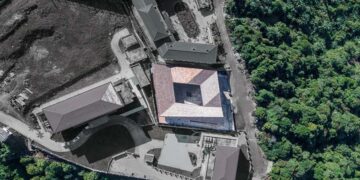The Thawing of the Funding Winter: Anticipated End in 6-12 Months

A sense of optimism pervades startup investors, with a Redseer survey indicating that more than two-thirds of them believe the funding winter will conclude within a maximum of one year. According to the survey, 50% anticipate its end within the next 6-12 months, with an additional 17% expecting it to thaw even sooner.
However, 33% of respondents exercise caution, estimating another 12-18 months before funding resumes its normal flow. The funding winter, which began in the latter half of the previous year, prompted startups to downsize, cut staff, and tighten budgets.
Funding Trends and Outlook
In 2022, startup funding witnessed a significant reduction, plummeting to approximately half the amount raised in 2021—$25 billion compared to the previous high of $42 billion. Nonetheless, 2021 stood out as an exceptionally prosperous year for startups, with funding averaging around $12-13 billion annually in the years leading up to the pandemic spike.
The current year, 2023, has been particularly challenging for startups. With more than half of the year elapsed, startup tech funding has reached only around $6 billion.
Redseer anticipates that funding patterns in 2023 will align with long-term trends observed from 2017 to 2020, hovering between $12-$15 billion. Furthermore, a bullish trend is expected to emerge in 2024, with funding potentially reaching $15-20 billion.
Investor Confidence and Trends
The number of funding deals, which declined in early 2023 to 700-900 deals from 1,519 deals in 2022, is projected to rebound in 2024 to 1,000-1,200 deals.
Kanishka Mohan, a partner at Redseer Strategy Consultants, notes that venture capitalists (VCs) currently possess more dry powder than ever before. Moreover, a positive sign is the prevalence of seed or early-stage deals, accounting for 90% of total deals this year, consistent with trends since CY17.
The number of active investors has doubled from 400 investors in 2018 to approximately 900 investors as of 2022. Additionally, global sources of funding have become more diversified, with the USA, EU, UAE, and Japan emerging as the largest funding sources for Indian startups, constituting 5% of total global funding and 20% of total APAC funding.
Future Projections
Redseer predicts that the next wave of unicorns will emerge from sectors such as Direct-to-Consumer (D2C), encompassing beauty and personal care, health and wellness, diagnostics and clinics, gaming, and app studios.





















